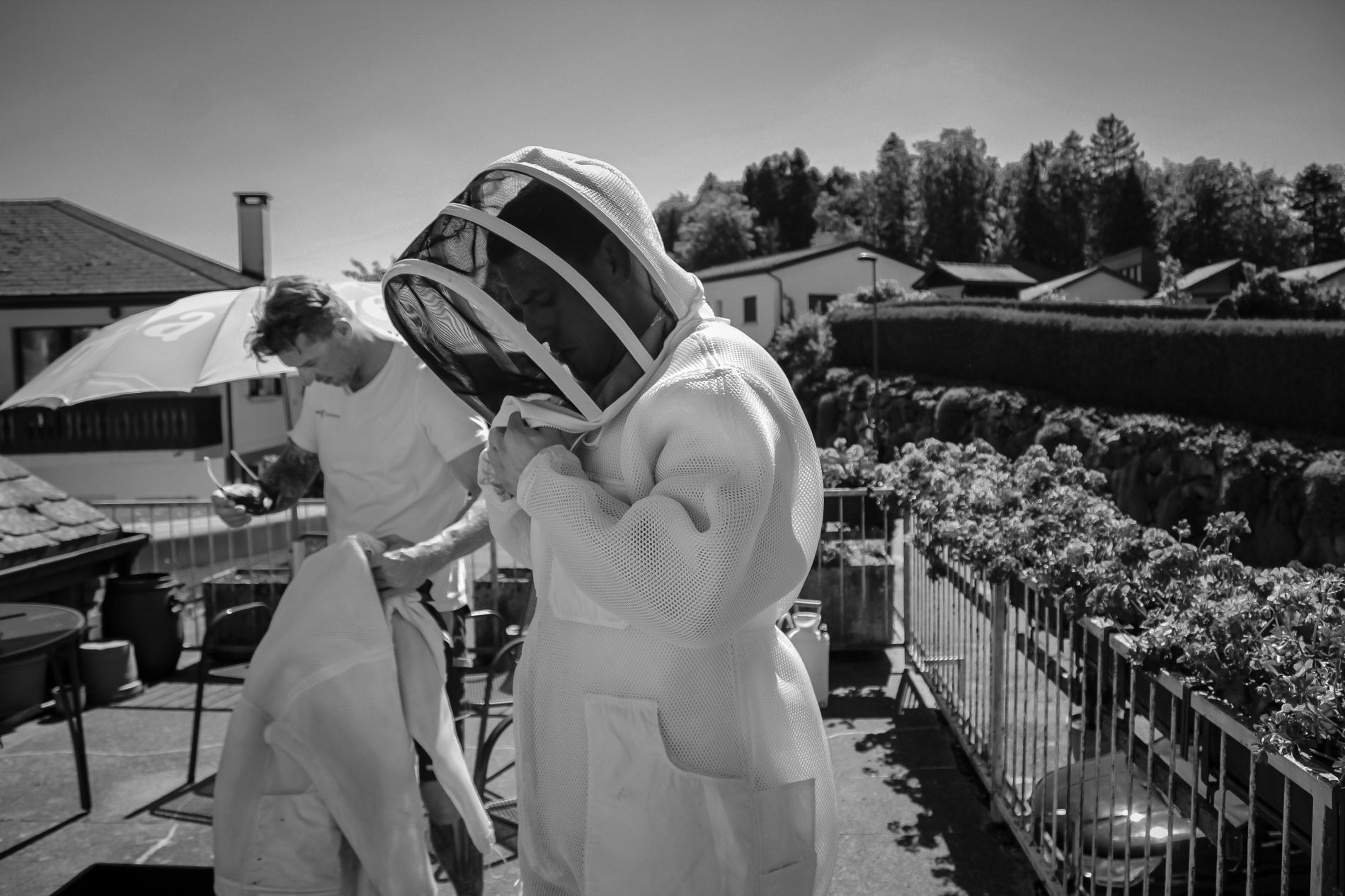
Fighting Asian hornets in Brione sopra Minusio
Have you discovered an Asian hornet's nest? We'll be on site quickly! Call now - Daily Mon-Sun 07:00-21:30. Contact us now: 058 510 22 54
Having the Asian hornet's nest removed
The hornet species Vespa velutina, originating in South-East Asia, has intrusively migrated to Switzerland and the broader subcontinent. Despite not being aggressive towards humans, it is infamous for preying on honey bees, stirring fear among beekeepers. A small group of these hornets can attack and eliminate a colony of bees within a matter of hours. If you have discovered a hornet's nest on your house, patio, shed, or in your blind box, contact our experts for hornet nest removal in Brione sopra Minusio!
Use the uncomplicated telephone service of the Hornet experts in Brione sopra Minusio and simply inform us at 058 510 22 54, we will be on site quickly so that you and everyone in your area feel completely safe again.
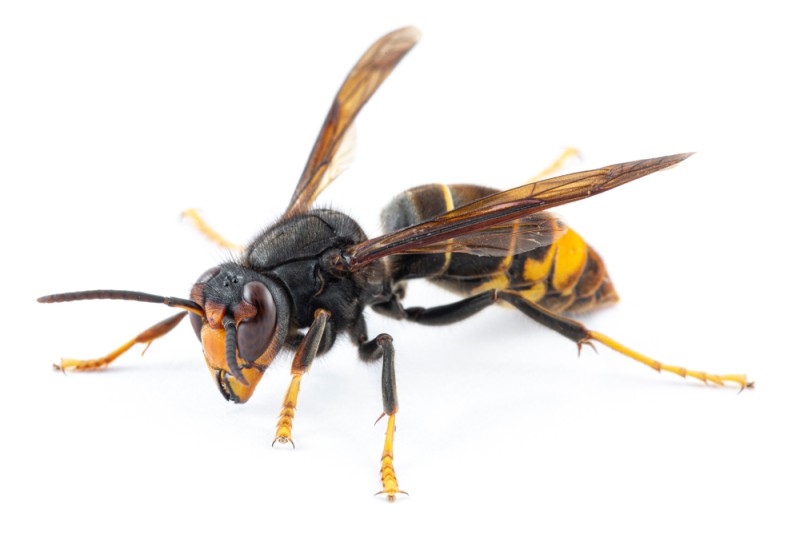

Appearance of the Asian hornet
Here are some characteristics that distinguish the Asian hornet:
1. Size: The queen can reach a length of about 3 cm, while the workers are slightly smaller and measure about 2.5 cm.
2. Color: The Asian hornet has a dark body that is almost black, with a yellow stripe at the back of the abdomen. Its face is orange-yellow.
3. Wings: The wings are dark and almost smoky gray.
4. Legs: The hornet has yellow tips on its legs, which is a striking distinguishing feature when it flies.
5. Nest: The Asian hornet's nest is often high in the trees, but it can also be found underground or in tall structures such as chimneys. It has an oval shape and is made of chewed wood, which gives the hornet a papery texture.
It is important to distinguish the Asian hornet from the European hornet (Vespa crabro), which is more harmless and a natural part of the European fauna. If you suspect you have found an Asian hornet nest near you in Brione sopra Minusio, you should report this to the local authorities, or using our reporting form, as they can spread quickly and be harmful to bees and other insects. To avoid being attacked by the flying inhabitants, you should hire a professional pest controller such as the Hornet Experts Brione sopra Minusio. We can identify the nest beyond doubt and take further steps to remove the Asian hornets professionally.
News about the Asian hornet in Brione sopra Minusio
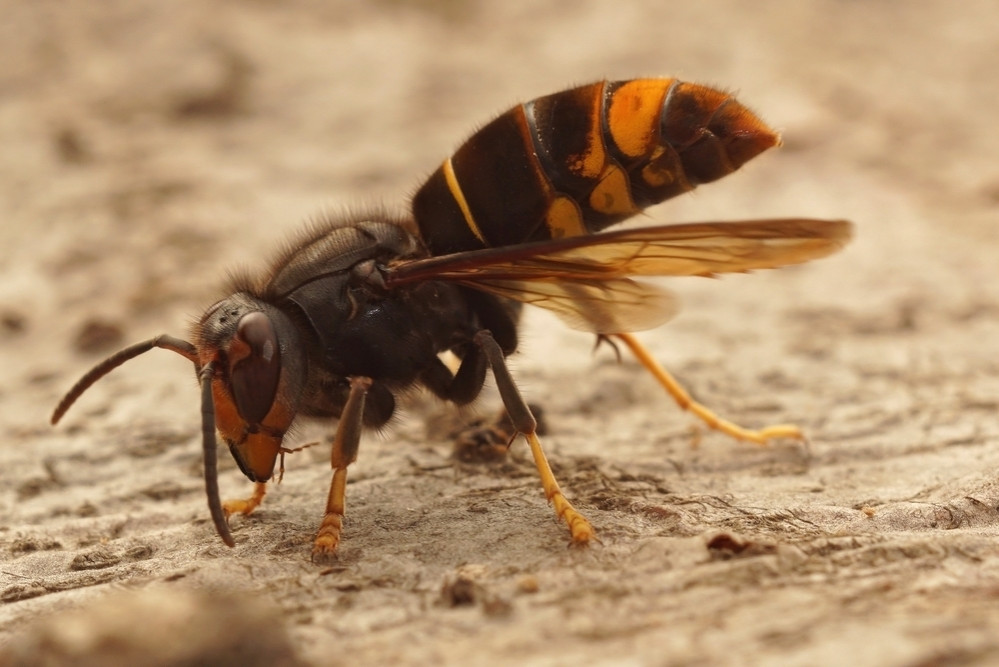
02.12.2025 Western Switzerland: Killer hornet eats bees
The territory of the Asian killer hornet has expanded considerably this year, with a notable increase reported in western Switzerland. This invasive species poses a significant threat to native bee populations, as bees make up the majority of its diet. The potential consequences are serious. Moreover, the hornet represents a danger to individuals with allergies to its venom.
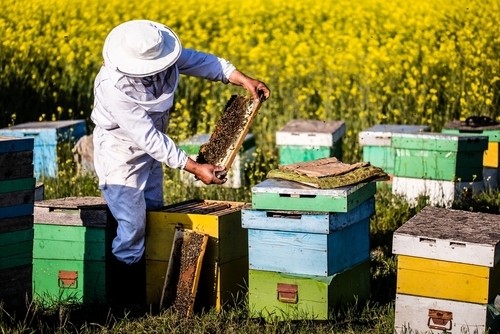
25.11.2025 Serious concerns about the bee population!
Asian hornets are inflicting significant harm on beehives across multiple parts of Europe, as reported by local beekeepers. Even a small number of hornets can destroy an entire bee colony within hours. This sharp decline in pollinators could have serious consequences for pollination, local ecosystems, and agricultural productivity.
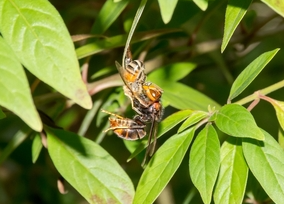
18.11.2025 Asian hornet doesn't just eat bees!
The danger it presents to insects is substantial!
The Asian hornet feeds largely on honeybees—up to 85 percent of its diet—alongside beetles and flies. This high level of predation not only poses difficulties for fruit growers but also further threatens already vulnerable bee populations.
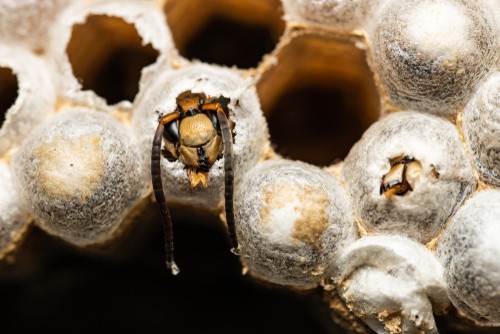
11.11.2025 How did the Asian hornet get to Europe?
The Asian hornet likely arrived in Europe unintentionally and has quickly expanded throughout France and nearby countries. Its adaptability to different environments and the absence of natural predators have contributed to its rapid spread. A single nest can generate several hundred new queens in one breeding season.
Asian Hornet Reporting Form
Please fill out all required fields and submit the form.
Help us!
If you discover an Asian hornet or a nest of this invasive species in Brione sopra Minusio, it is of the utmost importance that you report it immediately. The Asian hornet is not only dangerous to humans, but also poses a serious threat to native bee populations and the ecological balance in Switzerland.
Why is it important to report the find?
In regions where the Asian hornet successfully colonizes, it exerts a significant influence on native insects, particularly honey bees. With its predatory behavior towards bees, this hornet species plays a key role in the decline of pollinator populations, consequently affecting the local flora and agricultural productivity. By reporting sightings, experts can react quickly, remove the hornets or their nests and thus prevent the spread of this invasive species.
Notification form for sightings
We greatly value your assistance in our collective mission to regulate the overpopulation of the Asian hornet in Switzerland and safeguard our native insect populations. To aid in these efforts, we strongly urge you to report any suspicions or sightings using our designated reporting form. Your vigilance will enable us to promptly initiate interventions and minimize the potential impact of this dangerous species on our delicate ecosystems.
Your contribution is crucial in the fight against the Asian hornet in Brione sopra Minusio. Together we can protect nature and maintain the balance of our ecosystems;
Thank you for your vigilant attention and your commitment to protecting our environment.
How dangerous is the Asian hornet?
The Asian hornet (Vespa velutina) is a predatory insect that originated in Asia and has spread in recent years to various parts of Europe, including France and now also Switzerland and in Brione sopra Minusio. Although it poses a threat to honey bees and native biodiversity, it is generally no more dangerous to humans than other wasp species. Nevertheless, there are some aspects to be aware of:
1. Threat to honey bees: The Asian hornet preys on honey bees, threatening native bee populations. A decline in bees can have a negative impact on pollination and thus on local flora and agricultural production.
2. Stings: As with other wasp and hornet species, the stings of the Asian hornet can also be painful. For most people, the stings are unpleasant but not dangerous. However, people who are allergic to wasp or hornet stings can suffer a severe allergic reaction, which in the worst case can lead to anaphylactic shock.
3. Aggressiveness: Although the Asian hornet is not necessarily more aggressive towards humans than other wasp species, it can become aggressive if it feels threatened, especially near its nest.
4. Ecological effects: Apart from the direct effects on honey bees, the spread of the Asian hornet can also disturb the ecological balance by affecting the populations of other insects.
It is crucial to recognize the disparity between the Asian hornet and the Asian giant hornet (*Vespa mandarinia*) to avoid any confusion. The giant hornet, often referred to as the "killer hornet," is considerably larger and carries a stronger venom, which makes it potentially more dangerous to humans compared to the Asian hornet.
If you have discovered a nest, call us immediately: 058 510 22 54
Our hornet professionals in Brione sopra Minusio are certified by the VSS.
Frequently Asked Questions About Asian Hornets in Brione sopra Minusio
In comparison to most other hornet species, the Asian hornet is far more hazardous due to its ability to inflict potentially life-threatening stings, emphasizing the severity of its danger.
Measuring around 3 cm in length, the Asian hornet is a substantial stinging insect. Its dark, slender body boasts distinctive stripes in shades of orange, yellow, and black.
Although commonly displaying a shy and subdued nature, the Asian hornet's demeanor can dramatically shift when facing danger or feeling cornered. Its once passive disposition is replaced by an intense and combative defensive response, marked by heightened activity and aggression.
Humans must be cautious of the Asian hornet's venomous nature. Being bitten by this insect can cause intense pain and potentially result in allergic reactions.
The Asian hornet carries inherent danger due to its venomous sting, making it distinct from other wasps. Its sting delivers enhanced pain and has the potential to prompt allergic reactions.
In order to report an Asian hornet sighting, make sure to contact either a wild bee protection officer in your region or reach out to the designated department within the Ministry of Agriculture that deals with such reports.
Reporting Asian hornets is of great significance in averting potential attacks and managing the spread of this insect. Their territorial and aggressive disposition makes early reporting a key preventative measure.
If you encounter Asian hornets in Switzerland, it is essential to opt for professional hornet control measures. In such situations, it is recommended to contact a reliable pest control service for assistance.
Protection does not extend to the Asian hornet; however, it is vital to closely observe their populations to mitigate their potential spread.
During hibernation, the Asian hornet can be found huddled together in colonies or taking solitary refuge within the corners of walls, buildings, garden sheds, makeshift structures, or tree hollows.
Would you like more information about Asian hornets? Then take a look at our FAQ's about Asian hornets.
Private inquiry form
For an uncomplicated request to remove an Asian hornet's nest, please use our contact form for private individuals.
Real estate inquiry form
Use our property management order form to request the removal of an Asian hornet's nest.
Ecotox GmbH
Partner of: frelon-asiatique-suisse.ch & asiatische-hornisse.ch




_7.jpeg)
_7.jpeg)
_6.jpeg)
_7.jpeg)